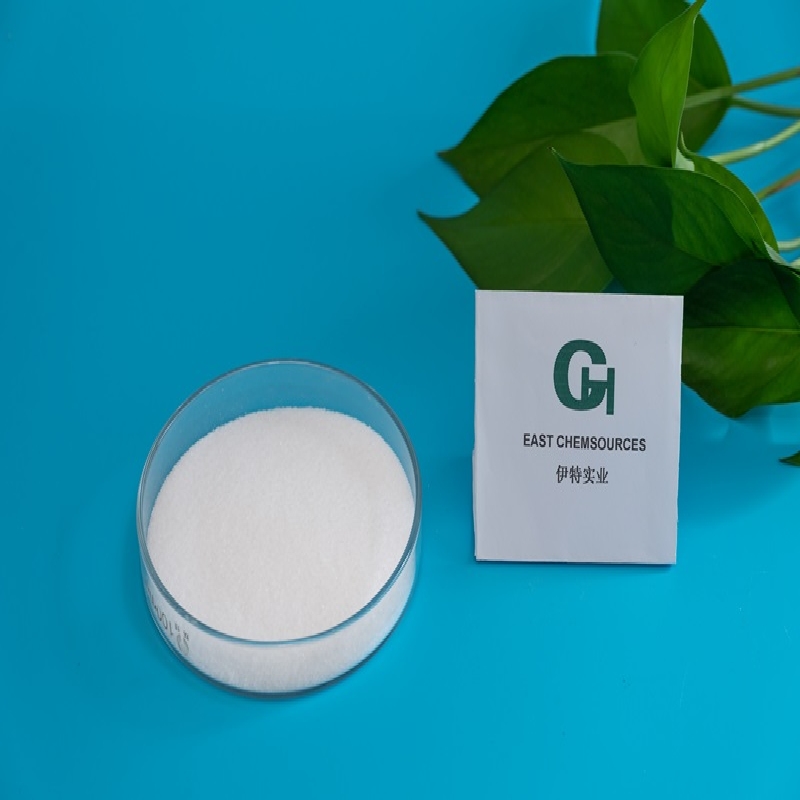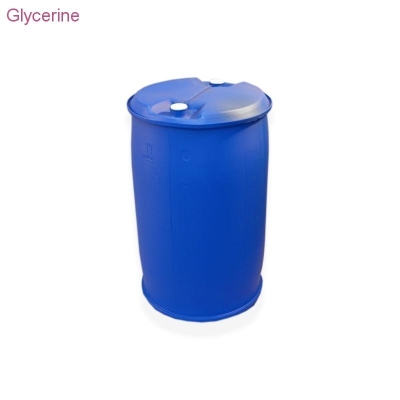-
Categories
-
Pharmaceutical Intermediates
-
Active Pharmaceutical Ingredients
-
Food Additives
- Industrial Coatings
- Agrochemicals
- Dyes and Pigments
- Surfactant
- Flavors and Fragrances
- Chemical Reagents
- Catalyst and Auxiliary
- Natural Products
- Inorganic Chemistry
-
Organic Chemistry
-
Biochemical Engineering
- Analytical Chemistry
- Cosmetic Ingredient
-
Pharmaceutical Intermediates
Promotion
ECHEMI Mall
Wholesale
Weekly Price
Exhibition
News
-
Trade Service
Singularity Cake would like to ask a question first: among the relatives and friends around the readers, how many people have a fatty liver on physical examination, but still should eat, drink, drink and not exercise, and don't take this matter to heart? If this is the case, there may be nowhere to buy regret medicine in the future.
A new study published in Nature today shows that if liver cancer patients have fatty liver, it may cause immunotherapy to hit a wall and fail to bring survival benefits to patients! This latest study from the German Cancer Research Center shows that under the influence of non-alcoholic steatohepatitis (NASH), a large number of CD8/PD-1 double-positive abnormal T cells will accumulate in the liver.
If PD-1/L1 inhibits It is these T cells that the agent activates, which not only cannot kill tumors, but also aggravates liver tissue damage.
The research team compiled and analyzed data from three large-scale clinical phase III studies and two validation cohorts, and also confirmed that immunotherapy has no survival benefit for patients with non-alcoholic fatty liver disease (NAFLD), which is useful for guiding liver cancer immunity The use of treatment, as well as the treatment of other cancers, may be of great significance [1].
From the perspective of the etiology of liver cancer, liver cancers caused by hepatitis B and C viral hepatitis account for nearly 90%.
Liver cancers caused by risk factors such as fatty liver and alcoholic liver are relatively rare, but with fatty liver disease The rate is getting higher and higher, fatty liver and viral hepatitis "superimposed carcinogenesis" is also quite common.
Last year, NASH/NAFLD was renamed internationally, and it is now called Metabolic-Associated Fatty Liver Disease (MASH/MAFLD) (Image source: American Gastroenterology Association).
The effect of fatty liver on liver cancer immune status has not been clear before, and some speculations.
Fatty liver-related chronic inflammation may lead to liver cancer immune microenvironment is pro-inflammatory [2], but this is not enough to guide the use of immunotherapy, so this experiment by German scientists.
The research team first analyzed the immune cells of conventional mice with NASH and obvious liver tissue damage under high-fat diet, and found that the number of CD8/PD-1 double-positive T cells increased significantly, and these T cells have an effect on gene expression.
The characteristics of cells, but the PD-1 and other molecules on the surface indicate that they are in a state of exhaustion.
The number of T cells has increased significantly, which should indicate that immunotherapy is useful.
However, the research team used a high-fat diet to induce NASH/NAFLD in liver cancer model mice, and then treated with PD-1/L1 inhibitors, but found that the tumors in the mice were almost Not moving, the effect is far inferior to mice without fatty liver! Immunotherapy is generally effective in mice, so it is very surprising if it is not moving.
In other words, fatty liver has become a stumbling block in front of immunotherapy.
Therefore, the research team feels that CD8/PD-1 double-positive T cells are absolutely not It's just tired from work.
After the targeted elimination of CD8+ T cells in ordinary mice, even with the induction of a high-fat diet, the occurrence of liver damage and liver cancer was significantly reduced.
Further analysis showed that the fatty liver + liver cancer model mice treated with PD-1/L1 inhibitors, although the number of CD8/PD-1 double-positive T cells increased significantly, but these T cells were activated by immunotherapy.
It will play an anti-cancer effect, but it will directly aggravate liver tissue damage and accelerate the occurrence of liver cancer.
Immunotherapy was originally intended to fight cancer, but now it has become cancer-promoting, which is really shocking.
The research team also cooperated with the team of the Technical University of Munich to reveal the mechanism of some CD8+ T cells damaging the liver in the fatty liver environment.
The research paper was also published in Nature on the same day [3].
The CD8/PD-1 double-positive T cells in this study also exist in people with NASH/NAFLD.
If immunotherapy is given to these patients with fatty liver, will it be counterproductive? The research team analyzed three key studies of liver cancer immunotherapy: CheckMate-459, KEYNOTE-240 and IMbrave150 data.
The first two immunosingle first-line/second-line treatment studies were unsuccessful, and only the IMbrave150 study used atilizol.
The first-line combination therapy of monoclonal antibody + bevacizumab has a clear effect.
The results of the analysis showed that when treating patients with liver cancer caused by hepatitis B or C, immunotherapy in the three studies had a clear overall survival (OS) benefit (HR=0.
64), but the treatment of liver cancer caused by non-viral hepatitis also In patients with alcoholic liver or fatty liver cancer, immunotherapy can only tie with sorafenib at best.
From the forest plot analysis, it can be seen that the survival benefits are mainly concentrated on the data of two validation cohorts of liver cancer patients caused by viral hepatitis, which further confirms that immunotherapy is not effective for liver cancer patients with fatty liver: patients with NAFLD in cohort 1 Although the proportion of first-line treatment is high and there are fewer large vessel invasions, immunotherapy is related to shorter OS.
The median OS of NAFLD patients in cohort 2 is also significantly shorter after immunotherapy.
The median OS of patients with NAFLD is only half of that of patients without.
This is really scary.
The research team pointed out in the paper that NASH/NAFLD may become the first Biomarker to guide liver cancer immunotherapy, and for other cancer patients with fatty liver, In the course of immunotherapy, it may also be necessary to pay close attention to the problems of liver damage and secondary liver cancer.
Whether it is NASH or NAFLD, there is no treatment in the short term.
If you want to reduce or even reverse fatty liver, you have to control your mouth and open your legs, but this is not easy for patients who are diagnosed with liver cancer.
So we really have to pay attention to fatty liver.
I don’t think it’s enough to say this sentence many times, really.
Singularity is hiring everyone! Everybody Hi~! Let today’s duty cakes replace all the singular cakes and shout out: Let’s order new cakes! Singularity has been with you for six years.
The days of chasing the updates of scientific research journals are passing very fast.
The singularity cakes have grown in knowledge and have less hair.
.
.
These years we have experienced immunotherapy, gene editing, artificial intelligence, etc.
The new technology has shown its brilliance, and we have seen more scholars working step by step under historical problems such as cancer, cardiovascular disease, Alzheimer's disease, and diabetes.
There are good studies cheering and shouting, and when the update is not effective, scientists are scolded for not working hard.
Write every day and update every day.
Now we have more than 2,000 original articles! To say that writing is the happiest, but it was turned over by the author of the paper.
The duty cake was praised by a big cow scholar about the key points, accurate interpretation, witty and easy to understand, and was also asked by the big guy if it was a professional eloquent writer.
The feeling at the time was really awesome.
(Akimbo.
jpg).
Now, we are going to try to explore new boundaries.
There are limits to the expressive ability of words, and the breadth and splendor of scientific research deserve to be known to everyone in more forms.
Next, we are going to try to contain the frontiers of science with video, so that everyone can sigh the beauty of life from different angles; at the same time, text is still our sharpest weapon, interesting, vivid and professional articles will go on and on and on.
.
.
.
.
.
We need fresh blood to inject new energy into the singularity.
Come on, become the singularity cake and do a new job with us! These are the little friends we are currently looking for~ If you want to create and innovate with the singularity cakes, come join us.
Please send your resume and works (if any) to: hr@geekheal.
com References: 1.
Pfister D, Núñez NG, Pinyol R, et al.
NASH limits anti-tumour surveillance in immunotherapy-treated HCC [J].
Nature, 2021.
2.
Koo SY, Park EJ, Lee C W.
Immunological distinctions between nonalcoholic steatohepatitis and hepatocellular carcinoma[J].
Experimental & Molecular Medicine, 2020, 52(8): 1209-1219.
3.
Dudek M, et al.
Auto-aggressive CXCR6+ CD8 T cells cause liver immune pathology in NASH[J].
Nature, 2021.
Head image source: Wikipedia Author of this article | Tan Shuo







